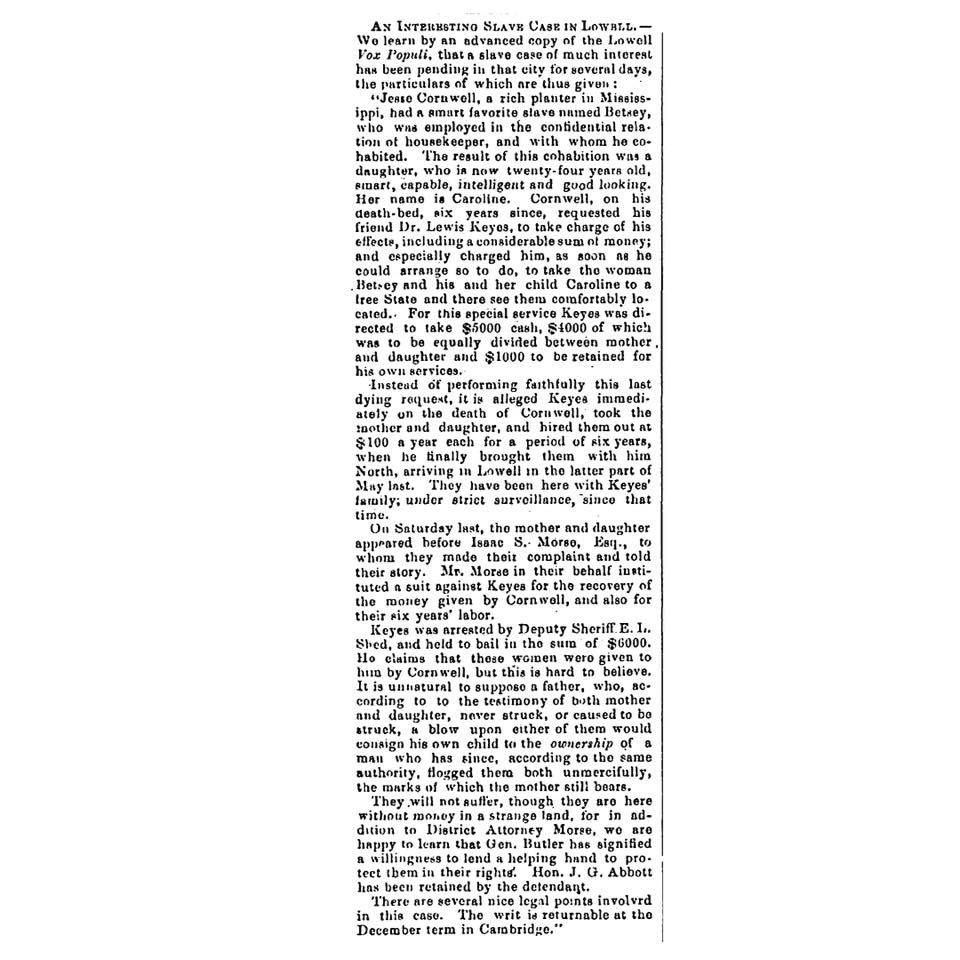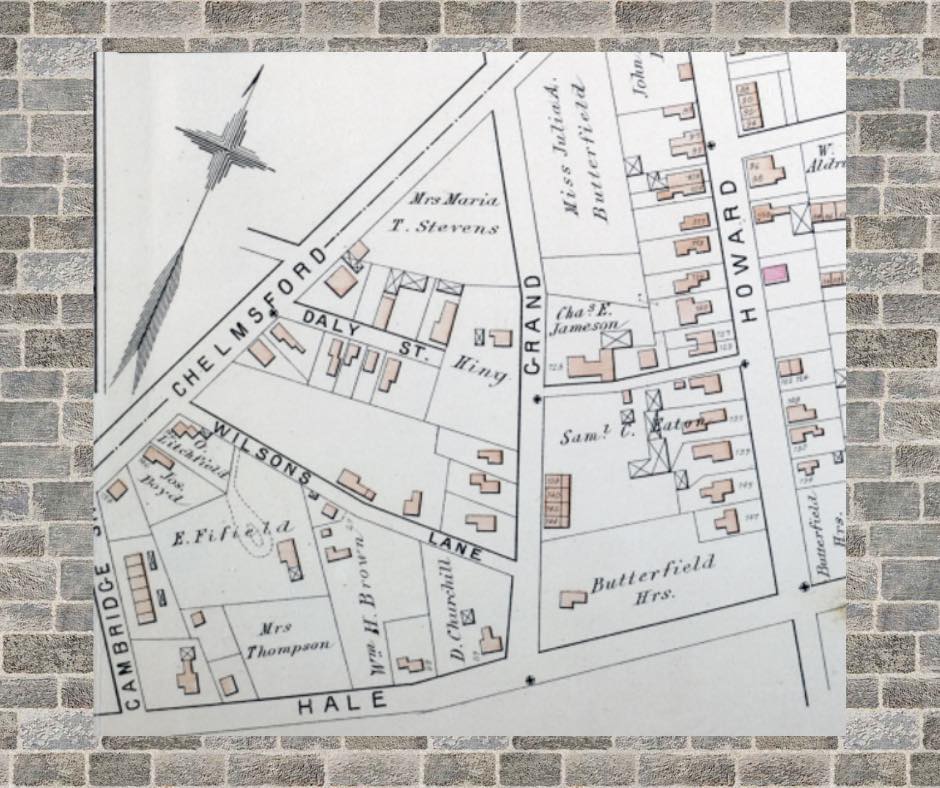Elizabeth (Betsy) Cornwell and her daughter Caroline were two women who were held in bondage by Jesse Cornwell. These two women were moved to Lowell, and continually had their freedom legally denied. They bravely sued to reclaim their freedom and additional years of labor worked, and had their freedom reinstated. Both Betsy and Caroline were provided a place to live in in Lowell, a consequence of the damages they faced. Caroline was a dressmaker and married a barber.
More of the Story
Before coming to Lowell, Betsy and her daughter Caroline were held in bondage by Jesse Cornwell, “a rich planter” in Mississippi. On his deathbed, Cornwell arranged for the women to be free and to move to another state with $4,000. Cornwell entrusted Dr. Lewis Keyes with this task–which was actually the emancipation of his own family, for Caroline was his daughter. Keyes broke the agreement, took the inheritance, and hired the women to others, making $100 annually off their labor for the next six years.
After these six additional years of uncompensated labor, Keyes took Betsy and Caroline to Lowell. His family put the women “under strict surveillance” in the city. Through networks now lost to time, the women came into contact with Isaac Morse, a lawyer based out of 49 Central St. With Morse, they sued to reclaim ‘money and labor fraudulently obtained’ in 1858. This was tremendously brave act committed under the threat of continued violence from Keyes.
Though coverage of this case noted that Lowell was a “strange land,” to the Cornwells, they stayed and made it familiar. Based on census and directory records, Betsy’s home was a base of community for other free Black people. Caroline, “a good dressmaker,” married a barber from Tennessee and also stayed in Lowell. Even in a “free state,” their freedom was not guaranteed.
(Thanks Lowell National Historical Park)


